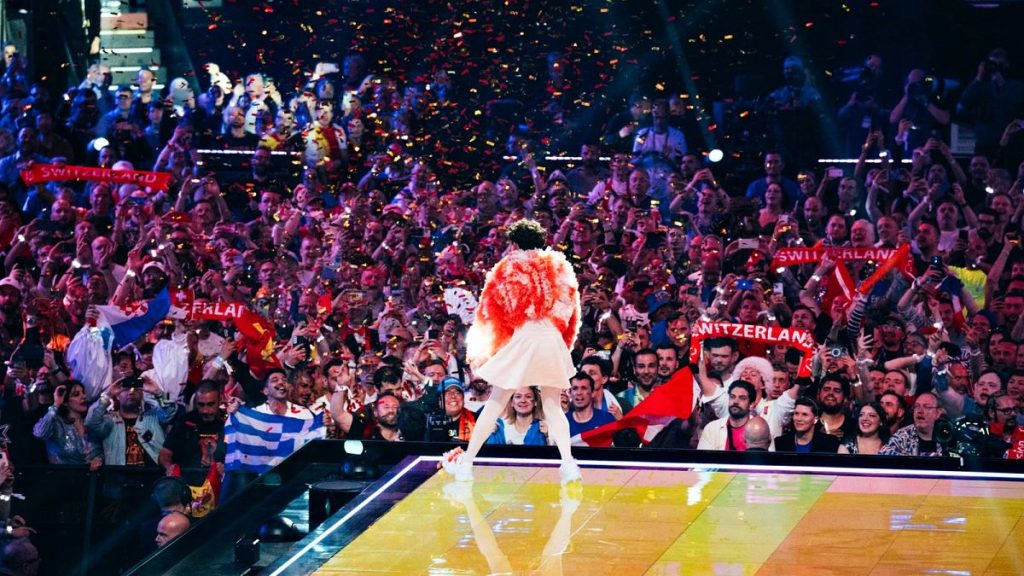The European Commission has expressed anger over the ban of EU flags at the Eurovision Song Contest and is demanding explanations from the European Broadcasting Union (EBU), the organizers of the event. Commission Vice President Margaritis Schinas strongly criticized the ban, stating that Eurovision is a celebration of European spirit and diversity, and the EU flag is a symbol of this unity. The EBU has stated that the flag policy was more strictly enforced this year due to geopolitical tensions, but there was no specific ban on EU flags in the written policy. The Commission is urging the EBU to reconsider this decision and not prevent people from expressing their values through the European flag.
The ban on EU flags at Eurovision came amidst a number of controversies during this year’s edition of the contest, including the last-minute expulsion of a contestant and the divisive participation of Israel during a time of conflict in Gaza. Journalists reported tension and chaos at the event, with the contest’s executive supervisor being booed by the audience. However, the atmosphere became ecstatic when Nemo, the Swiss representative, won the competition with the song “The Code.” The ban on the EU flag led to confusion and disappointment among attendees, who were shocked to be told that the flag was considered political and not allowed at the event.
The flag of Europe, with its distinctive blue background and 12 yellow stars, has become a symbol of European unity since it was adopted by the EU as its official flag in the 1980s. The flag is often displayed in public buildings alongside national flags across the 27 member states of the EU. The ban on EU flags at Eurovision raised questions about whether the flag was being perceived as a political symbol rather than a symbol of unity and cultural diversity. Attendees were asked to surrender their EU flags before being allowed entrance to the venue, despite the flag being allowed in previous years.
The Eurovision Song Contest, which prides itself on being a non-political event, has faced criticism for restricting the display of certain flags, including the EU flag and non-binary pride flags. While spectators are allowed to display flags from participating countries and the Pride flag, the ban on other symbols has been met with backlash. Nemo, the Swiss contestant who identifies as non-binary, spoke out against the restrictions on non-binary flags, calling it a double standard. Eurovision organizers have emphasized the importance of ensuring that the contest remains non-political and free from any controversies or politicization.
The controversy surrounding the ban on EU flags at Eurovision has sparked a debate about the freedom of expression and the importance of symbols of unity and diversity in a time of geopolitical tensions. The European Commission is calling on the EBU to reconsider their decision and allow the display of the EU flag, emphasizing that celebrating European values and diversity is crucial, especially in challenging times. The ban on certain flags at Eurovision has highlighted the need for clear guidelines and policies regarding the display of symbols at public events and the importance of respecting different identities and expressions of cultural heritage.


